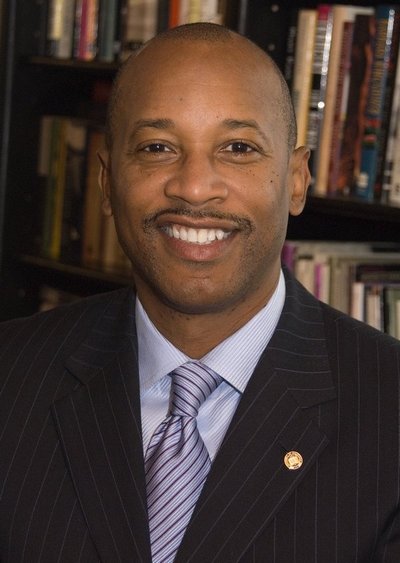February 7, 2008
Dorsey to head state’s Mathematics Engineering and Science Achievement (MESA) program
A program for encouraging more underrepresented groups in Washington State to pursue science and technology careers has named James Dorsey as its new executive director. Dorsey’s professional background includes 25 years in California advancing education equity. Dorsey plans to use his expertise to expand Washington’s K-12 program to reach students in community colleges.
MESA (http://washingtonmesa.org/), which stands for Mathematics Engineering Science Achievement, works to encourage students from groups historically underrepresented in high-tech fields: African Americans, Latinos, Native Americans and women. MESA currently serves some 5,000 K-12 students throughout Washington state, offering them a hands-on math and science curriculum, college readiness workshops, scholarships, college visits, internships and summer programs. Nationally, students who participate in MESA are five times more likely to pursue college degrees in math and sciences than their non-MESA peers.
Outgoing director Patricia MacGowan has led the Washington MESA program since its inception in 1982. Over the years, the program has slowly expanded from its basis in four Seattle high schools to 92 schools across the state, including special programs for elementary schools, middle schools and tribal schools.
“Washington state is number 1 in the country in terms of its need for scientists and engineers, but it’s number 38 in terms of producing them,” Dorsey said. Part of the solution, he believes, is to expose and inspire a greater number of Washington’s youth to pursue math- and science-related careers.
The statewide program receives support from industry partners including Boeing, Weyerhaeuser and Intel, and funding from philanthropists such as the Bill & Melinda Gates Foundation, Social Ventures Partners and the Paul G. Allen Family Foundation. Regional centers are based at the UW, Pacific Lutheran University and Washington State University campuses.
“I am delighted that James Dorsey is here as the new director,” said MacGowan, who says she asked Dorsey to apply for the position. “His experience in moving MESA to the community colleges and dealing with national initiatives is just right for where we are now.”
She supports the move to expand into community colleges.
“Over half the students of color in Washington state start their higher education in community college,” she said. “We know they’re interested in math and science, we know they can do it, but we lose them at this crucial step. It’s an essential step to make this investment.”
Dorsey’s most recent position was national director of program development for California MESA, where he developed partnerships with Hewlett Packard, Google, Amazon and other companies, and tripled the size of California MESA’s community-college program. Members of the selection committee said they were impressed with his ability to develop partnerships and to initiate national programs.
The African American geology major described himself as someone who could have been a good candidate for MESA’s programs. When he enrolled as a civil engineering major in college, his professor took him aside on the first day of class and said “that I was not suited to be an engineer, that I didn’t have the math background and that I wouldn’t enjoy the field,” Dorsey recalls. “I let him push me away.”
Now, Dorsey says it’s his “calling” to prepare other underrepresented students and encourage them to pursue their dreams.
During the past month Dorsey visited each of the six Washington centers: Tacoma/South Puget Sound; Southwest Washington, Yakima Valley/Tri-Cities; and Spokane. The Seattle area office and a center serving Native American students across the state are both housed in the UW’s College of Engineering, where Dorsey is also based.
In his travels Dorsey observed some differences between California and Washington.
“The communities that MESA traditionally serves — African Americans, Latinos and Native Americans — are very well represented throughout the whole state of Washington,” Dorsey said. “And a lot of these students [in rural areas] have been untapped in terms of exposing them to math, science and engineering careers. That was very promising to see.”
An opportunity exists to develop larger rural programs, Dorsey said.
MESA activities include providing teachers with a culturally relevant curriculum to engage students in math and science subjects. Students in the program have access to in-school and after-school programs, field trips and science and engineering mentors. MESA also holds workshops that encourage parents to support their children in math and science careers.
The proportion of Washington MESA high-school seniors who go to college is roughly double that of all African American, Native American and Hispanic high-school graduates. The state office won a Presidential Award for Excellence in Science, Mathematics, and Engineering Mentoring in 2000, recognizing its effect on groups underrepresented in science, technology, engineering and mathematics (see <a href=http://uwnews.washington.edu/ni/article.asp?articleID=1973>here</a>).
“MESA works,” Dorsey said. “It is recognized as a highly successful program, and it needs to be supported and expanded. MESA has a tremendous impact, not just on an economic basis, but also on a community and a social basis.”



